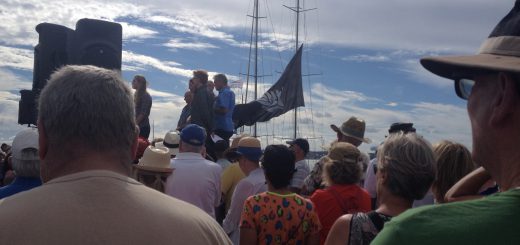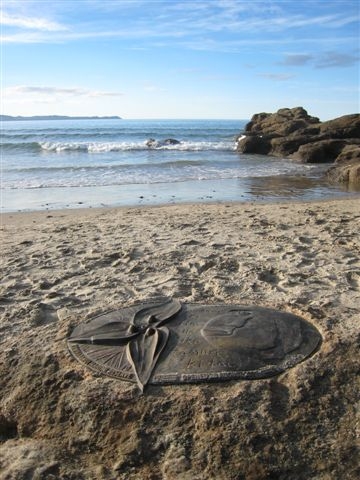Ports of Auckland and Auckland Council – ‘rogerpolitics alive and well
The last month has seen a series of unhappy incidents that remind us that the neo-liberal reforms of the 80s and 90s still have a baleful influence on our public life – even in our ‘most liveable’ super city.
We rightly associate ‘rogernomics’, with the privatisation of publicly-owned assets. But there is much more to it than that. Neo-liberalism isn’t just about privatisation, it is about the wholesale colonisation of the public sector by the private. At a basic level in the council this means work that was originally carried out by council works and parks staff is now invariably contracted out to private businesses.
When the bright sparks in Wellington first brought in this policy they argued it would mean council costs would come down. That didn’t happen – after the laying-off of the council works staff, trucks and bulldozers and years of local knowledge and know-how, costs to ratepayers sky-rocketed and continue to do so. But there is also a mental colonisation where all too often ‘busy-friendly’ councils place the interests of big business and developers ahead of the public interest.
There is yet another aspect to rogernomics – what Professor Richard Mulgan famously called ‘rogerpolitics’. By this Mulgan meant public bodies that were once governed by democratically elected people, harbour boards, power boards, water and wastewater utilities and the like being replaced by corporatized entities. The argument from the reformers in Wellington of the time was that as these entities were revenue earning they would be better off run by private business people, (and suites of high powered managers – and eventually privatised). Auckland Transport was the brainchild of the architects of the Super City, Steven Joyce and Rodney Hide. They argued in 2009 that even though public transport is not revenue earning (in fact it costs ratepayers and taxpayers a lot of money), it needed to be corporatized – become a ‘council controlled organisation’, or CCO. However in response to widespread criticisms voiced in the select committee process, pointing out that over 50% of council rates go into public transport, the government gave ground. As a concession it made provision in the legislation for two elected councillors to be appointed to the board of Auckland Transport. Cr Chris Fletcher and myself were nominated by the mayor on the basis of our experience in public transport. This arrangement, a board comprising a mixture of commercial people and councillors has been in place since 2010. However early in February I learned via the media that the deputy mayor, Penny Hulse was recommending that councillors should be removed from the board of Auckland Transport. This on the alleged grounds that councillors (representing the ratepayers), have an innate ‘conflict of interest’. This is complete nonsense of course and the idea raised a media storm – it was postponed and remains to be resolved politically. Following hard on that ideological flatulence, came the shock disclosure that the council-owned CCO, Ports of Auckland acting like a rogue private company, had wangled non-notified consents from council bureaucrats to build two massive wharfs extending 100 metres into the harbour from the present Bledisloe reclamation. Then, as revealed in the Herald, (though it was meant to be a secret meeting) councillors were persuaded to back down on provisions in the Unitary Plan that would have made it tougher for Ports of Auckland to extend reclamations into the harbour. This, the Herald reported was on the advice of a senior council planning officer that the policy was legally un-defendable. However, I was shocked to learn from the same Herald article that legal advice commissioned by the council but never shown to the councillors states the opposite. That in fact the original policy, strongly supported by the public, was indeed legally sound. It appears that critical information was knowingly withheld from the councillors by council officers who appear to be putting the demands of the port company and its lawyers ahead of those of the wishes of the public. If this wasn’t bad enough a few days later, the port company revealed it had began to demolish the historic Marsden Wharf, obviously to up the ante on its demands for more cargo (car parking) space.
However I can end my article on a happy note. I am proud to say the board of Auckland Transport rejected the advice of its management and the recommendation of the planning commissioner and voted to save the Great North Road pohutukawa trees. Congratulations to those concerned Aucklanders and the Waitemata Local Board who campaigned tirelessly to save these trees – and to my Auckland Transport director colleagues for their wise decision. Destroying six pohutukawa trees for another lane of roadway was an ill-conceived, foolish idea – but it pales compared to the plans now underway by Ports of Auckland to reclaim vast areas of the Waitemata Harbour to park more cars.



